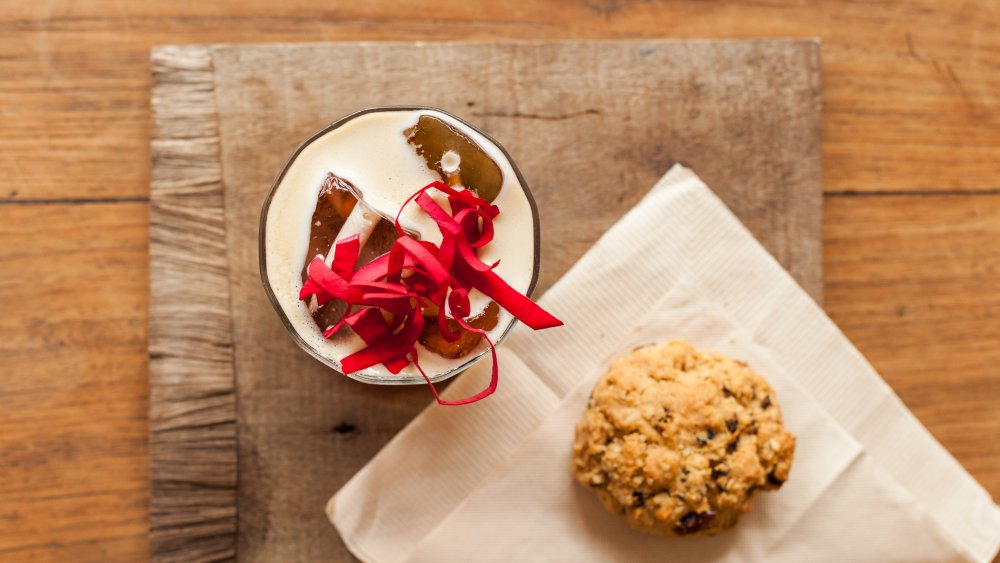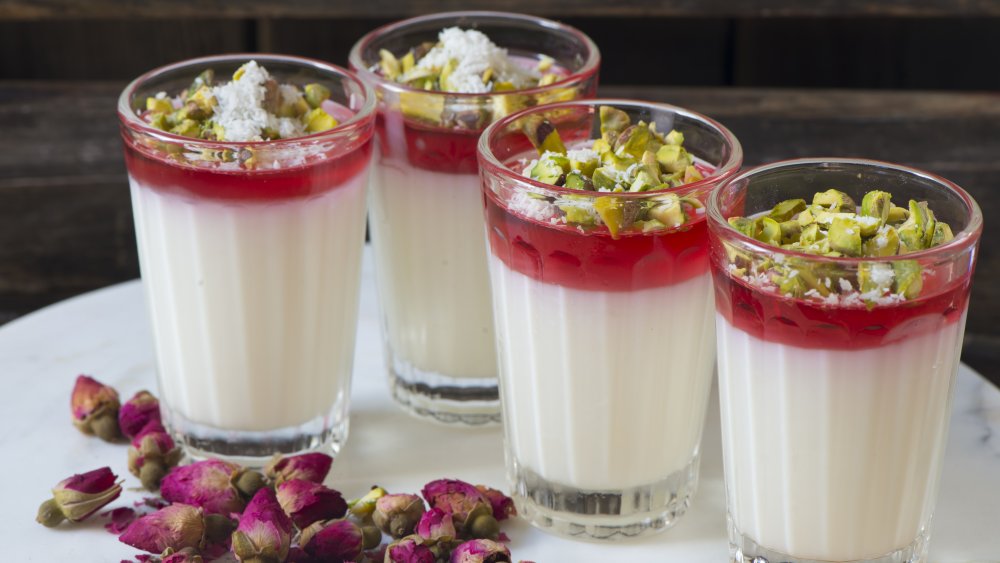The Secret Ingredient You Never Knew Your Iced Coffee Needed
Many of us probably can't remember a time when we couldn't have shots of vanilla, mocha, cinnamon dolce, or pumpkin spice added to our coffee, but if you're really looking to up your iced latte game with something a little extra, we think it might be time to step out of your comfort zone and add a bit of rosewater to your icy brew.
Rosewater isn't exactly a go-to flavor for many of us, yet it's been a part of kitchens for thousands of years, originating in ancient Greece and Persia. Epicurious says the essence is a distilled liquid made from rose petals using steam, and most commonly found in treats like marzipan and Turkish delight. Rosewater was actually considered a staple in American kitchens up until the late 1800s before vanilla became fashionable — in fact, early apple pies were even flavored with rosewater, and it doesn't get more American than that (via Historical Society of Pennsylvania)!
The Kitchn loves how rosewater adds a subtle flavor to dishes without being overpowering or too perfumey, saying that the ingredient can be used the same way vanilla extract is, though rosewater has a much milder flavor. They state that the secret to boosting your java with flower power is to find a good quality essence, and then adding about a teaspoon of the liquid to enhance your iced coffee — because (as The Kitchn puts it) a splash of rosewater can take cold coffee into a whole new sphere without stealing the drink's spotlight.
Rosewater is not only good in iced coffee
Epicurious recommends using rosewater to bring an added dimension to desserts like ice cream, panna cotta, or puddings. The outlet says rosewater can also be added to cakes, muffins, and tarts; and goes well with spring and summer fruits like strawberries, raspberries, peaches, and rhubarb.
Rosewater can not only be paired with sweets, but works in savory dishes too. Its floral scent can be used to add a bit of je ne sais quoi to meats and seafood prepared with recipes from the Middle East and other parts of the world. MyRecipes points out that the essence compliments the flavors of spices like cardamom, coriander, cumin, saffron, and ginger — so think Indian and North African dishes.
No matter how you decide to incorporate rosewater into your meals, be sure to use a light hand. Cooks Illustrated reported they tried substituting equal amounts of vanilla for rosewater and found the floral flavor to be too intense for many tasters. Given this, you're probably better off using this essence sparingly, or about half of the amount of vanilla your recipe calls for. If you really love the taste of rosewater, swapping of a teaspoon of vanilla for 3/4 teaspoon of the flower essence should do the trick. For iced coffee, The Kitchn recommends rosewater novices begin with 1/2 teaspoon, or about half of what they normally use, and then going up in small increments from there until you achieve your desired flavor.

